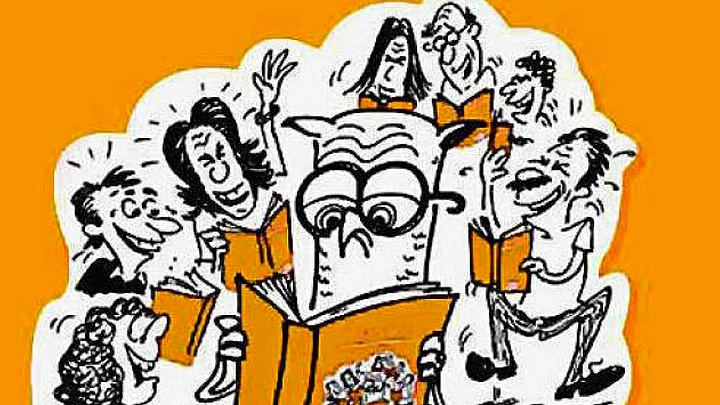A couple of days ago when I started working on my third book, I asked a friend in Mumbai to help me straighten up a Parsi character.
Having spent a good part of my life in Chandigarh, I had no idea about the Parsi community, except the bits I had gleaned from watching Bollywood movies and reading novels by acclaimed writers like Rohinton Mistry and Cyrus Mistry.
“It should not be too difficult,” my friend answered without a second thought. “Make your character swear as much as possible and you have your typical Parsi guy right there.”
This assertion was followed by an aphorism: “mummo chuchcho vugur seerpa nahi” (which means, “if you don’t swear you are not a Parsi!”).
The Parsi Community has a Sense of Humour: Soli Sorabjee
My friend’s description of a ‘typical Parsi guy’ piqued my curiosity and led me to pick up a book titled: Parsi Bol 2 by acclaimed screenwriter of Salaam Bombay fame, Padma Shri Sooni Taraporevala, and noted journalist, Meher Marfatia. A first of its kind effort, the book compiles 1,058 insults, endearments and Parsi Gujarati phrases from 308 contributors across 200 pages. These phrases have further been grouped into several categories depending on what they relate to. What’s more, just as Punjabis are not all about balle balle, Parsis – or dhunsakias, as they are also called – are not all about mummo chuchho (BC/MC; swear words).
Corroborating the fact is Soli Sorabjee, former Attorney-General of India:
The Parsi community has a sense of humour. It can laugh at itself and is tolerant of people criticising it.Soli Sorabjee
This book is a testament to that. While most of the phrases are downright funny, full of quirky humour and piquant wit, others are going to leave the readers in splits. For instance, edya nee juherkhubur jhevoo mohnoo (literally, ‘face like an advertisement for castor oil’, figuratively means, ‘dour-faced’), or suhrah chhuh noh kato (literally, ‘hands of the clock at 6.30’, figuratively means, ‘impotent’), as also Rokra Satheh Vehla Pudharjo or RSVP (which means, ‘come early with cash’), and nahi agasee nahi otlo (literally, ‘neither a balcony nor a verandah’, figuratively means, ‘a woman with neither boobs nor bum’).
What makes this book an easy read for a non-Parsi is the literal and idiomatic meaning of all the Parsi Gujarati phrases in English. Elaborating on this, Marfatia compliments the skills of the translator, Rutty Manekshaw who not only helped crack the phrases, but also made the translation uniform throughout the book. The phrases have been illustrated by renowned cartoonists, Hemant Morparia and Farzana Cooper which means most of these – even the juicier ones like furniture bahr (a show of cleavage) – can be understood by all.
A Language “Uniquely Our Own”
Complementing the book is an audio CD of the phrases in the voices of Dolly, Bomi Dotiwala, and Bollywood actor Boman Irani; the latter peppering his twangy narration with tiny anecdotes from his life whilst giving a list of his own personal favourites like cheechee popo (mollycoddle) and hureem dhureem (which refers to someone who is large and strong).
Speaking about anecdotes, Marfatia remembers how her mother would often use the phrase rajajee nee juga ma derkajee (literally, ‘frog sits on the king’s throne’, figuratively means, ‘to usurp’) whenever she found her lolling or reading for too long on her favourite rocking chair and she wanted to sit there to say her prayers on it.
Talking about the book, Taraporevala stated how Parsi Bol 2 is a celebration of a language which is “uniquely our own, imaginative, creative and imagistic”. It is no wonder then that while the first edition was sold within six months of its publication, the second edition found the “unlikeliest of readers” as per Marfatia.
Just as you say you are from Chandigarh and yet find the book interesting, we know a Tam Brahm-Sindhi couple and their kids who played dumb charades acting out our phrases instead of the usual movie titles.Meher Marfatia
Interestingly, when I began my research, the only image of a ‘typical Parsi guy’ that came to my mind was of Bollywood actor Dinesh Hingoo dressed in Parsi sudreh and legha speaking accented Hindi with a smattering of maro deekro and O Khodaijee. It was after I read this book that I started to wonder why most Bollywood movies present such a caricaturised version of Parsis? Is it because of their language and the self-deprecating humour?
No, it is not because of our language, but because of Bollywood’s limited talent in the humour department. What’s funny in Bollywood is generally slapstick.Padma Shri Sooni Taraporevala
True that! Well then, it was all in good time that such a book came out – or, as Boman Irani puts it:
After reading Parsi Bol it was shocking to realise that nobody had thought of doing this before. It’s as scary as losing the recipe for dhansak and lagan noo custar — we would have lost forever what is unique to us — our wisdom and our heritage.Boman Irani
(Vani has worked as a business journalist and is the author of ‘The Recession Groom’. She can be reached @Vani_Author)
